
Edgeworthia Red Dragon Pot de 4 litres Gamm Vert
Edgeworthia Chrysantha Red Dragon is a medium-sized shrub that can grow up to 6 feet tall and wide. Its leaves are dark green and have a slightly glossy texture. The flowers of this plant are arranged in clusters and are bell-shaped. They are typically white, but can also be yellow. The bark of the plant is smooth and grayish-brown in color.
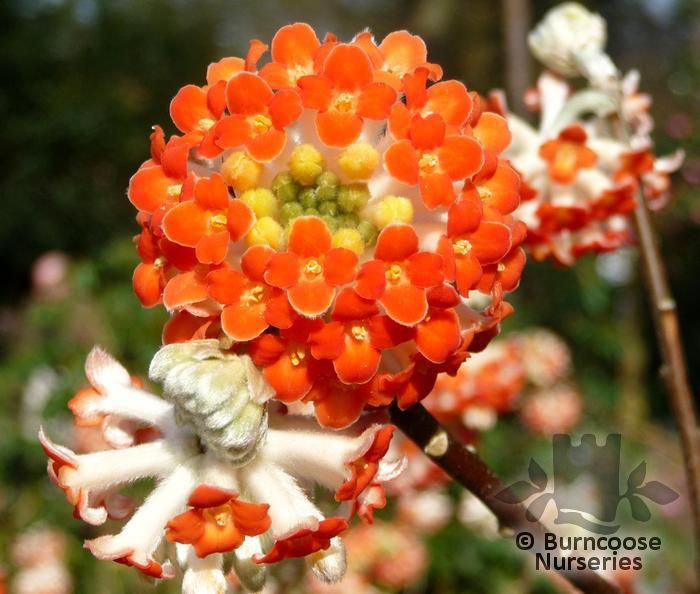
Edgeworthia Chrysantha 'Red Dragon' from Burncoose Nurseries
Edgeworthia is a gorgeous flowering houseplant during the cold season. It's flower has a similar fragrance as the Daphne.. Another species of the paperbush is the Edgeworthia chrysantha 'Akebono,' also known as the red dragon. The flower clusters vary from orange to red shade compared to the other Oriental paperbush with a yellowish tint.
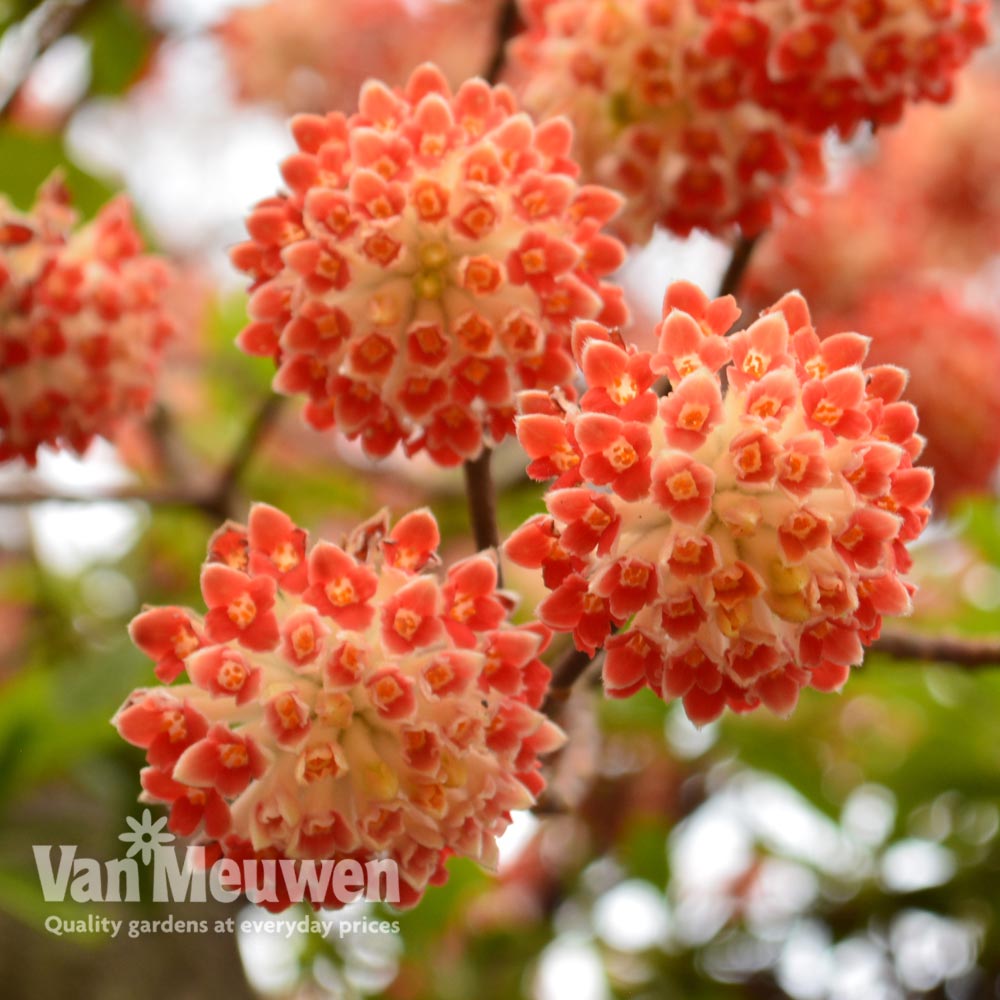
Edgeworthia chrysantha 'Red Dragon' Van Meuwen
Edgeworthia chrysantha 'Akebono': A slow growing broadleaf deciduous shrub with green foliage and red and orange flowers in spring and winter. Attractive to bees and hummingbirds. To grow well, it prefers sun - dappled shade and regular water. Grows best in well-drained, rich and average soil. In need of something humidity tolerant? This may be a good option.

Edgeworthia tomentosa (Thunb.) Nakai 1919 cv. 'Red Dragon' (THYMELAEACEAE) a photo on Flickriver
This coveted member of the Daphne family is prized for the clusters of glorious red-orange tubular blooms that form at the tips of bare stems in late winter. Lush green leaves follow and persist through the summer. Please note flower coloring can vary depending on temperature. Deciduous shrub; mature size: 4-6 ft T x W. Minimum temperature: 0° F.

Edgeworthia chrysantha Red Dragon Garden Plants
Edgeworthia chrysantha red dragon is a beautiful plant that has many nicknames including the paper bush, and the golden euonymus. It is part of the tea family and is native to Asia. The red dragon has dark green, glossy leaves and clusters of fragrant, yellow flowers that bloom in the winter. This plant is perfect for any garden or home as it is easy to care for and only requires minimal watering.
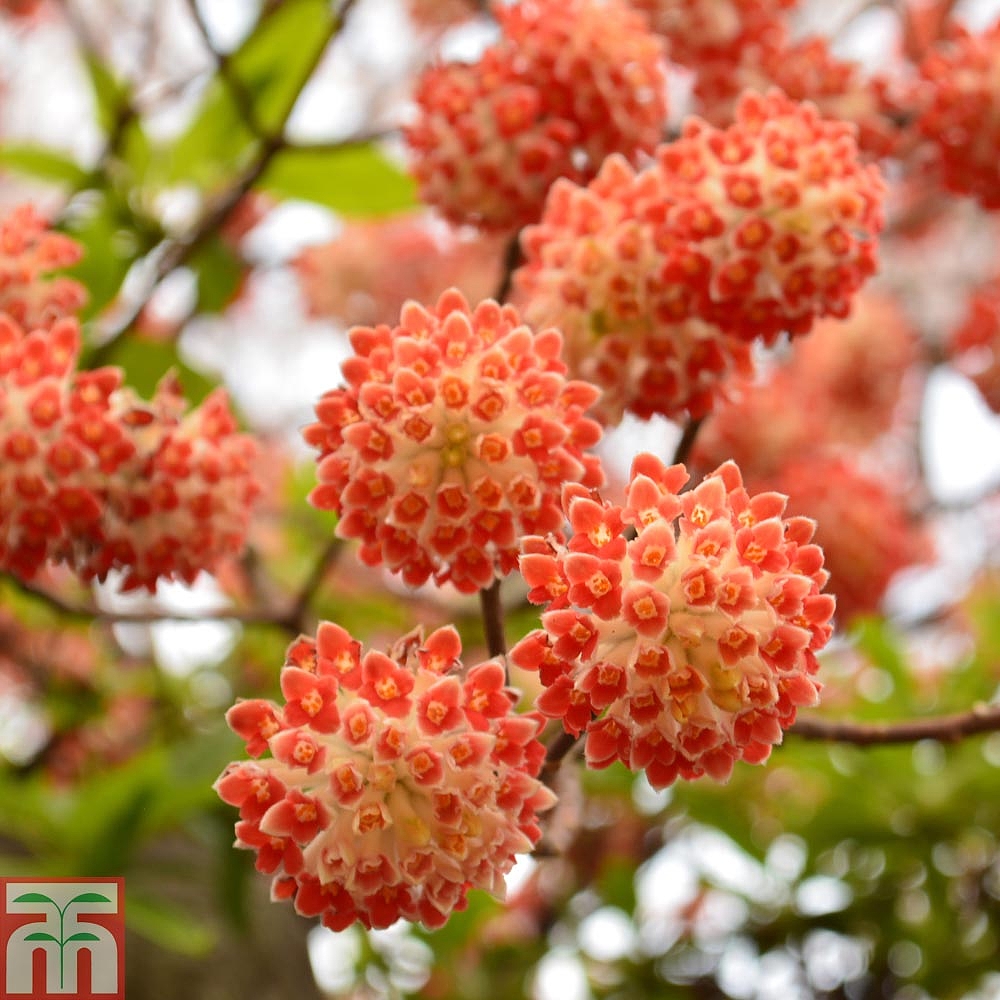
Edgeworthia chrysantha 'Red Dragon' plants Thompson &
Facts: Edgeworthia. Family: Thymelaeaceae. Genus: Edgeworthia - Named for M.P. Edgeworth (1812-81) and English amateur botanist employed by the East India Company.. Common Name: Chinese Paper Bush, Yellow Daphne. Origin: Found in the woodlands of the Himalayas and China.. Foliage: Deciduous, alternate, simple, narrowly oblong, dark greenish blue.Leaves lend a tropical look during summer and.
Edgeworthia chrysantha Red Dragon Edgeworthia Akebono à fleurs rouge
Edgeworthia Red Dragon is reasonably hardy but in frost-prone areas it should be grown against a warm wall & protection should be provided during spells of hard frost. As the plant matures any old and unproductive stems can be cut out to the base after flowering. Otherwise, little pruning is needed.
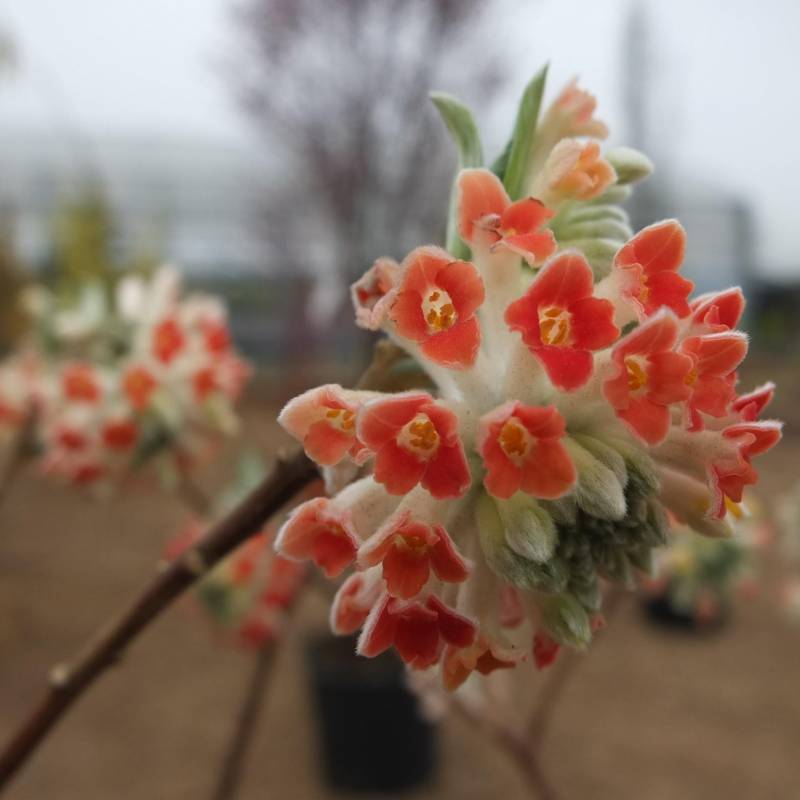
Edgeworthia chrysantha 'Red Dragon'
Paperbush - known in nerd circles as Edgeworthia - is a robust shrub related to daphne with large leaves resembling those of tropical frangipani. In fall, those big, lush leaves turn clear yellow before dropping. Best of all are the fragrant flowers that appear in late winter - floury-looking white buds open to reveal clusters of soft, buttery yellow blossoms, sometimes starting as early as.

Edgeworthia Chrysantha Red Dragon Stock Photo Image of blooming, cream 218854880
Edgeworthia - Paper Bush - is a rounded shrub with lance-shaped leaves and globes of small fragrant tubular yellow flowers, each with 4 lobes, that appear before the foliage in early Spring. Will require frost protection. 'Red Dragon' bears green, woolly flower buds that open to fragrant orangey-red flowers.
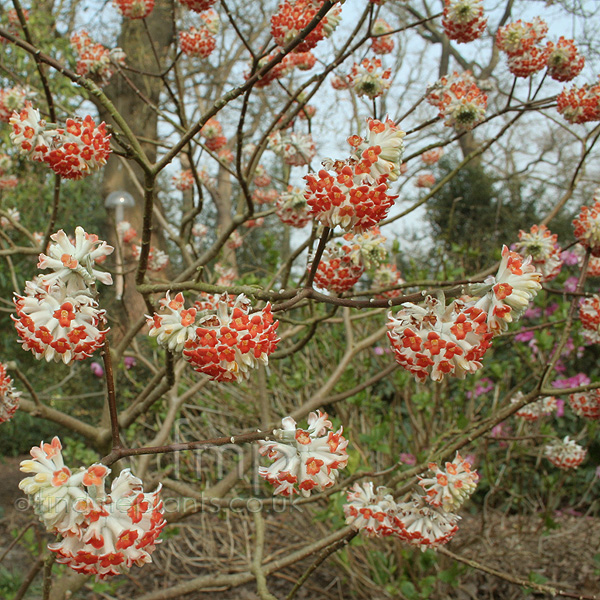
Edgeworthia chrysantha 'Red Dragon' Information, Pictures & Cultivation Tips
Species: chrysantha (kris-ANTH-uh) ( Info) Cultivar: Red Dragon. Synonym: Edgeworthia chrysantha f. rubra. Synonym: Edgeworthia rubra. One vendor has this plant for sale. 7 members have or want this plant for trade.
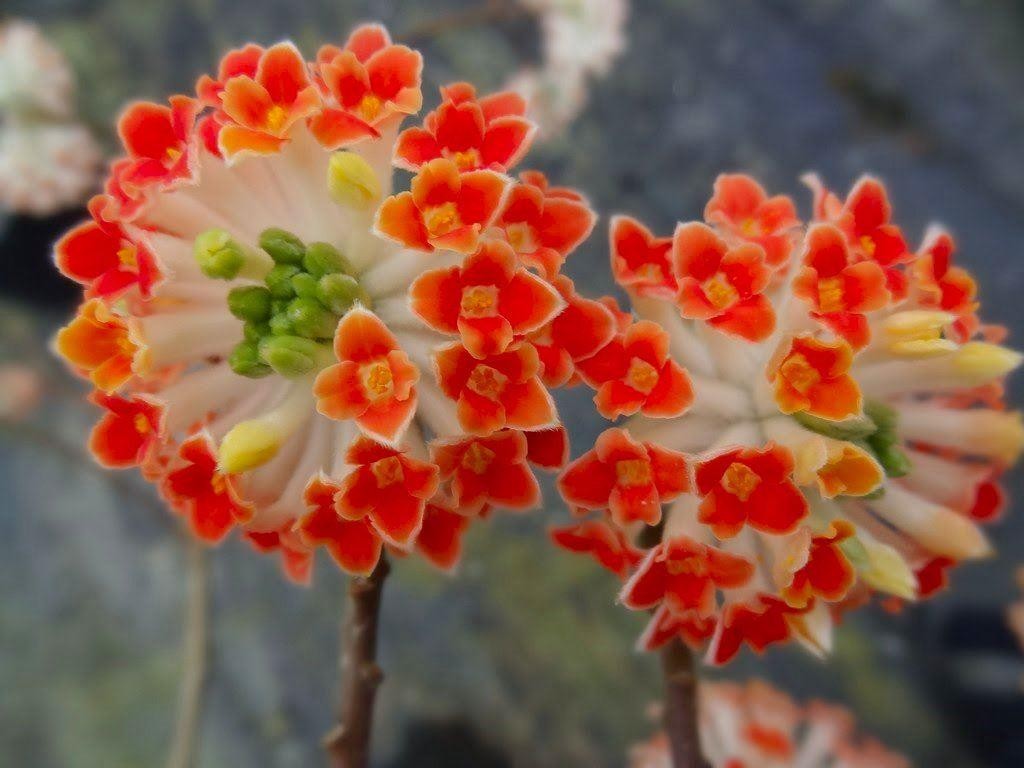
Edgeworthia chrysantha Red Dragon Garden Plants
There are two Edgeworthia worthy of mention for UK or suitable similar zoned gardens. Edgeworthia chrysantha which has several other common names attached to it, and its offspring - Edgeworthia chrysantha 'Red Dragon'.. Other than flower colour, they have similar growth and requirements, though I see from close observation - by way if taking close-up photos - that maybe the 'Red Dragon' is.
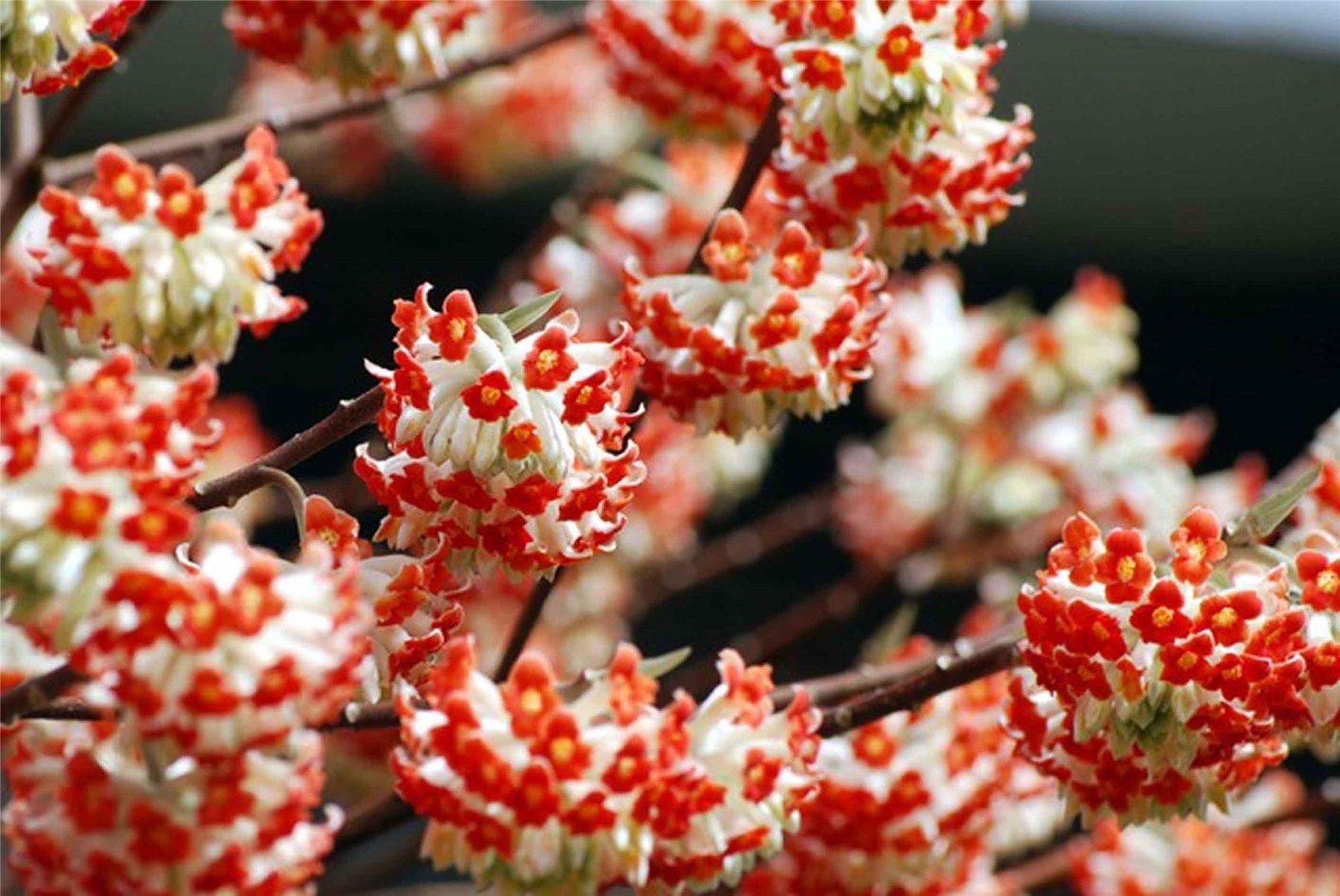
Edgeworthia chrysantha Red Dragon Garden Plants
Edgeworthia is a shrub native to China and the Himalayas that provides superb fall and winter interest and a gardenia-like fragrance. This well-branched, well-formed shrub begins forming its silvery buds in late summer into fall, adding interest to your fall garden.. 'Red Dragon', 'Snow Cream' Tags:

Edgeworthia Red Dragon Pot de 4 litres Gamm Vert
Double Horsechestnut (1) Double Mint Gardenia (1) Dragon-eye Pine (1) Drops of Gold Japanese Holly (1) Dwarf Clumping Bamboo (1) Dwarf Crested Iris (1) Dwarf Florida Anise Tree (1) Dwarf Japanese Andromeda (2) Eco Minibox Azalea (1)

Edgeworthia chrysantha Red Dragon Garden Plants
Edgeworthia is a giant flowering shrub, reaching 6' to 8' feet tall.. The red dragon variety produces orange-red flower colors. Pin. Light and Temperature. Paperbush plants prefer partial shade to full shade for a healthy, long-lasting life but can grow in full sun.
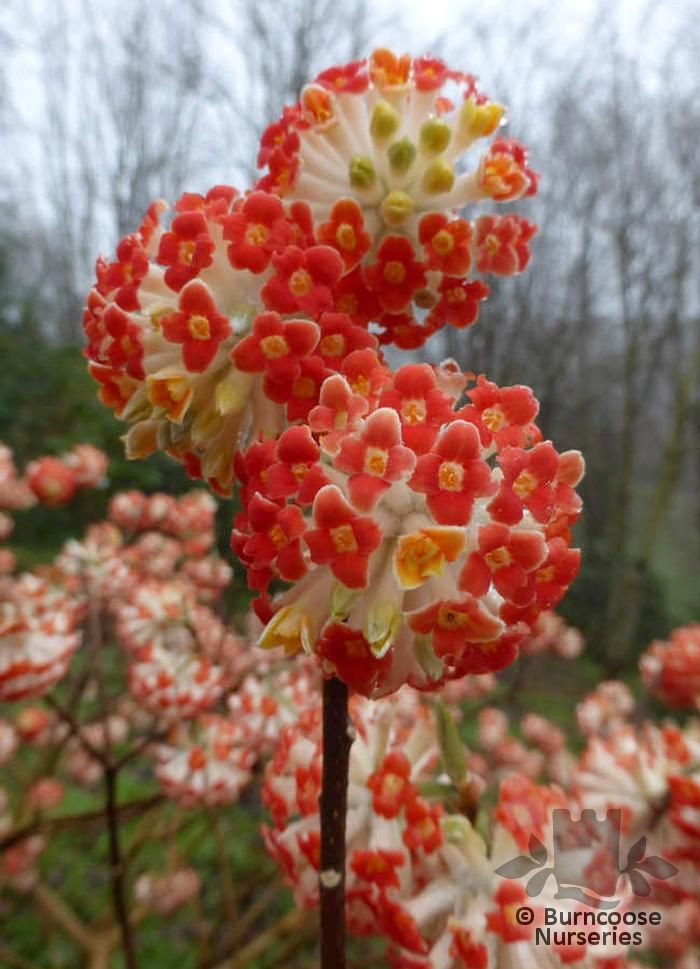
Edgeworthia Chrysantha 'Red Dragon' from Burncoose Nurseries
Although there is an orange-red form, Edgeworthia 'Akebono' (aka 'Red Dragon') on the market, it is unfortunately the non-fragrant shorter diploid form. The most exciting new development that I've seen in edgeworthias is a hybrid of the large tetraploid form and the shorter diploid form, which I hope will be named and released in the near future.

Edgeworthia chrysantha Red Dragon
Edgeworthia chrysantha 'Red Dragon'. paperbush 'Red Dragon' A deciduous, bushy shrub to 1.5m tall with supple stems and oval, green leaves. Green, woolly flower buds, borne in winter at the ends of the bare branches, open in late winter to early spring forming dense clusters of fragrant, orange-red, tubular, nodding flowers